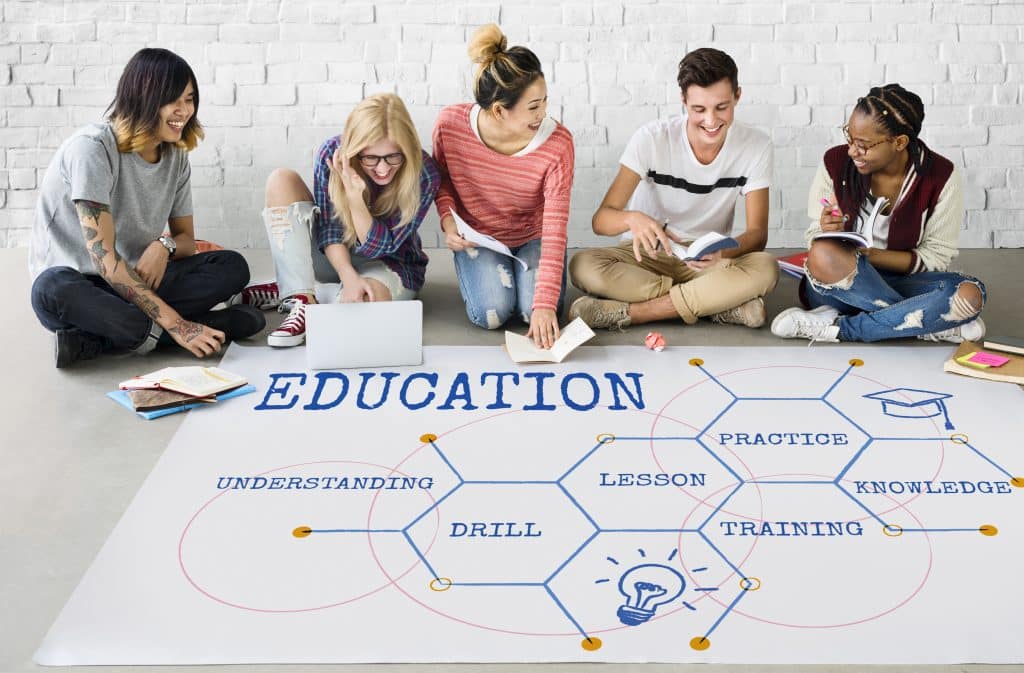Why Education Is Key to Building a Better Society
Samantha Lee August 13, 2025
Education is often considered the cornerstone of progress, and for good reason. It influences every aspect of society, from economic growth to social equality. Today, more than ever, the importance of education in shaping a better, more equitable society is evident. In an era of rapid technological change and growing social challenges, education provides the tools to address these issues, empower individuals, and build a more sustainable future.
In this article, we’ll explore why education is essential for building a better society and how current trends in education can drive social change. We will also discuss emerging trends in education and their potential to make a lasting social impact.

Education and Its Role in Social Development
Education impacts society in various ways, from boosting economic growth to improving overall well-being. It is a powerful force for reducing inequality, promoting social mobility, and preparing individuals to contribute to society.
1. Education Fuels Economic Growth
Education and economic growth are closely linked. A well-educated workforce drives innovation, increases productivity, and attracts investment. According to the World Bank, improving education outcomes can lead to a significant increase in a country’s GDP. When individuals are equipped with the necessary skills, they contribute to a competitive and sustainable economy.
Transition: However, the benefits of education aren’t limited to economic growth.
2. Education Promotes Social Equality
One of the most significant roles of education is its ability to reduce social inequalities. By providing access to quality education, societies can level the playing field and ensure that everyone, regardless of their background, has the opportunity to succeed. UNESCO emphasizes that education is one of the most powerful tools for addressing issues like poverty, gender inequality, and social injustice.
Actionable Tip: Ensuring equal access to education for all is the first step toward building a more equitable society.
3. Improved Health and Well-Being
There’s a strong connection between education and health. Studies show that people with higher levels of education tend to live healthier, longer lives. According to The Lancet, education plays a significant role in preventing diseases, promoting better nutrition, and improving mental health. Educated individuals are more likely to make informed health choices and seek medical care when needed.
Transition: Education also influences the way individuals engage with their communities.
4. Fostering Active Citizenship
An educated population is essential for a thriving democracy. Research from The Economist shows that people with higher levels of education are more likely to vote, participate in community activities, and engage in discussions on social issues. Education empowers individuals to understand their rights and responsibilities, which in turn promotes active citizenship and strengthens democratic institutions.
Emerging Trends in Education Shaping Social Impact
As education evolves, several emerging trends are reshaping the way we view its role in society. These trends reflect the ongoing changes in the global landscape and highlight how education can address modern challenges.
1. EdTech: Revolutionizing Learning
Educational technology (EdTech) is transforming how we access and experience education. From online courses to interactive learning tools, technology makes education more accessible and personalized. Platforms like Coursera, edX, and Khan Academy offer high-quality courses to individuals across the globe, democratizing access to learning.
Transition: The growth of EdTech is also contributing to social change in profound ways.
2. EdTech for Social Good
EdTech isn’t just about convenience—it’s about making education available to underserved communities. According to a report from UNESCO, EdTech has the potential to address disparities in education and provide marginalized groups with access to learning materials. This is especially important in regions with limited access to quality educational institutions.
Actionable Tip: As EdTech continues to grow, consider how it can bridge educational gaps in your community.
3. Focus on Mental Health in Education
In recent years, there has been a growing recognition of the importance of mental health in education. A study from WHO emphasizes that mental health support in schools helps improve students’ ability to focus, learn, and engage with the curriculum. Many institutions are now integrating mental health programs and support services into their offerings, ensuring that students have the emotional tools needed to succeed.
Transition: As we look at the future of education, inclusivity is taking center stage.
4. Inclusive Education and Diversity
Inclusive education aims to provide equal learning opportunities for all students, including those with disabilities or from marginalized backgrounds. Today, the focus is shifting toward creating more inclusive classrooms that foster diversity and promote understanding among students of different cultures, abilities, and identities.
Actionable Tip: Advocate for policies and practices that promote inclusivity and diversity in educational institutions.
5. Sustainability and Green Education
As the world faces climate change and environmental degradation, education is becoming an important tool for fostering sustainability. Schools and universities are increasingly integrating sustainability into their curricula, focusing on topics such as renewable energy, climate science, and environmental stewardship. According to a 2021 report by the United Nations, sustainable education is critical in building a generation that will tackle global environmental challenges.
Transition: Sustainability isn’t just about the environment; it’s about the future of society.
The Impact of Education on Building a Better Society
Education plays a central role in addressing social issues and promoting societal well-being. Here are some ways that education directly contributes to creating a better society:
1. Reducing Poverty and Inequality
Education is one of the most effective tools for breaking the cycle of poverty. By providing individuals with the knowledge and skills needed for employment, education creates opportunities for upward social mobility. Additionally, it reduces income inequality by giving people from disadvantaged backgrounds a chance to improve their economic standing.
2. Promoting Social Cohesion
In diverse societies, education fosters a sense of shared identity and mutual respect. By teaching students about different cultures, histories, and perspectives, education helps build bridges and promote understanding, reducing social tensions. This is particularly important in today’s globalized world, where cross-cultural communication is essential for peace and cooperation.
3. Building a Knowledgeable Workforce
A well-educated population is essential for a strong economy. Education equips individuals with the skills required to adapt to new technologies, innovate, and contribute to the workforce. This, in turn, drives economic growth and ensures that societies can compete in a rapidly changing global marketplace.
4. Encouraging Innovation and Progress
Education fuels innovation by teaching individuals how to think critically, solve problems, and generate new ideas. A report from the National Bureau of Economic Research found that education is strongly correlated with entrepreneurship and the ability to develop new technologies. By fostering innovation, education helps societies progress and address future challenges.
Conclusion
Education is not just a personal achievement—it’s a societal necessity. By investing in education, societies can address global challenges, reduce inequality, foster innovation, and improve overall well-being. With the rise of EdTech, increased focus on mental health, and an emphasis on inclusivity and sustainability, education is evolving to meet the demands of the modern world.
As we continue to navigate complex social, economic, and environmental issues, education remains at the forefront of societal development. By prioritizing education, we can build a better, more equitable society for future generations.
Reference
- Education Fuels Economic Growth- https://www.worldbank.org
- Education Promotes Social Equality- https://www.unesco.org/en/education
- Improved Health and Well-Being- https://www.thelancet.com







